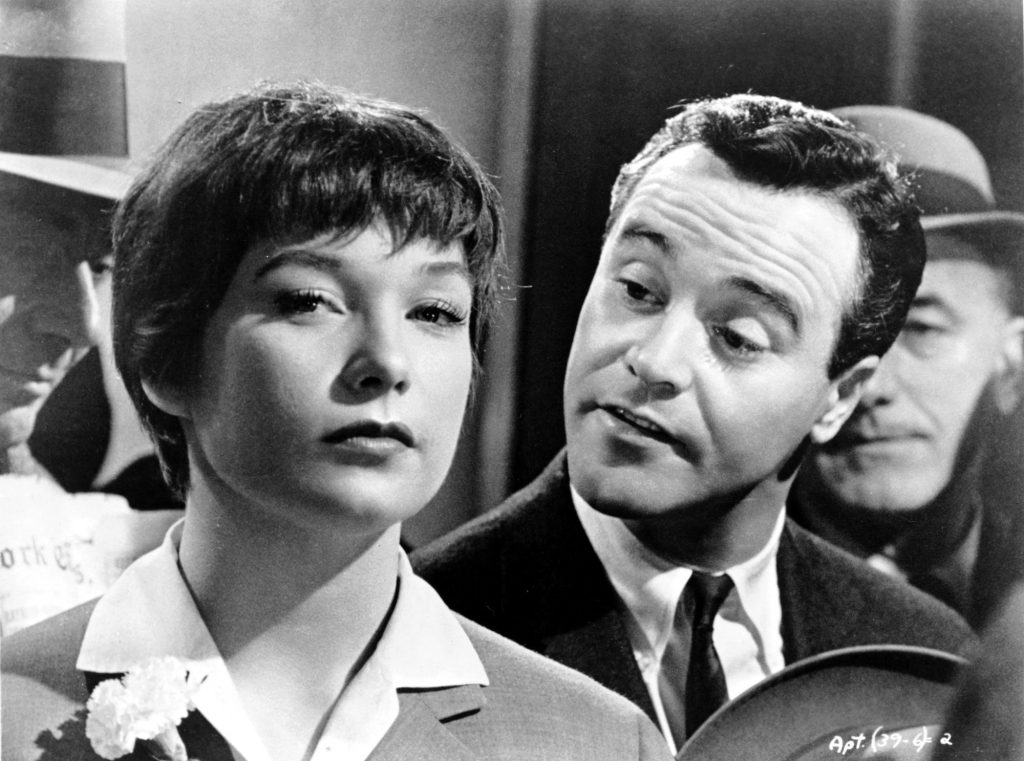“The Apartment,” a 1960 film directed by the legendary Billy Wilder, stands as a quintessential example of American cinema’s Golden Age. A film that seamlessly blends comedy and drama, it showcases Wilder’s unique ability to tackle serious social issues with a light touch. Starring Jack Lemmon, Shirley MacLaine, and Fred MacMurray, “The Apartment” not only won the Academy Award for Best Picture but also sparked considerable controversy due to its daring exploration of workplace ethics and extramarital affairs.
Billy Wilder, one of Hollywood’s most esteemed directors, was known for his sharp wit, incisive storytelling, and a penchant for pushing boundaries. With “The Apartment,” Wilder took a significant risk by delving into themes that were considered taboo at the time. The film centers around C.C. “Bud” Baxter, played by Jack Lemmon, a lonely and ambitious insurance clerk who lends his apartment to his superiors for their extramarital trysts in hopes of climbing the corporate ladder.
Jack Lemmon delivers a stellar performance as Bud, perfectly capturing the character’s vulnerability, ambition, and eventual moral awakening. Lemmon’s portrayal is both humorous and poignant, making Bud a relatable and sympathetic character. Shirley MacLaine, who plays Fran Kubelik, an elevator operator and the object of Bud’s affection, brings a nuanced performance that balances strength and fragility. Fran is involved with Bud’s boss, Jeff Sheldrake, portrayed by Fred MacMurray, whose character embodies the unethical and manipulative corporate executive.
The film’s plot thickens as Bud falls for Fran, only to discover that she is entangled in a complicated and painful relationship with Sheldrake. This love triangle forms the emotional core of the film, driving Bud to confront his own values and the ethical compromises he has made in his pursuit of success. Wilder’s direction ensures that while the narrative is engaging and often humorous, it also carries a profound critique of corporate exploitation and the dehumanizing effects of a profit-driven society.
“The Apartment” was groundbreaking in its candid portrayal of adultery and corporate malfeasance. At a time when the Hollywood Production Code still imposed strict moral guidelines on films, Wilder’s unflinching look at the moral complexities of the workplace and personal relationships was both revolutionary and controversial. The film’s willingness to address these issues head-on, without resorting to moralizing or simplistic resolutions, sparked debates about the representation of morality in cinema.
Despite—or perhaps because of—its controversial subject matter, “The Apartment” was a critical and commercial success. It garnered ten Academy Award nominations and won five, including Best Picture, Best Director for Billy Wilder, and Best Original Screenplay for Wilder and his frequent collaborator I.A.L. Diamond. The film’s success was a testament to Wilder’s skill as a storyteller and his ability to blend humor with serious social commentary.
The controversy surrounding the film did not diminish its impact. Instead, it underscored the importance of addressing real-life issues in art. “The Apartment” challenged audiences to reconsider their own ethical boundaries and the consequences of their actions within both personal and professional spheres. By doing so, it paved the way for more mature and complex narratives in Hollywood.
“The Apartment” remains a timeless classic, a film that continues to resonate with audiences due to its brilliant direction, outstanding performances, and its bold examination of moral and ethical dilemmas. Billy Wilder’s masterpiece not only entertained but also provoked thought and discussion, solidifying its place in the pantheon of great American films.

